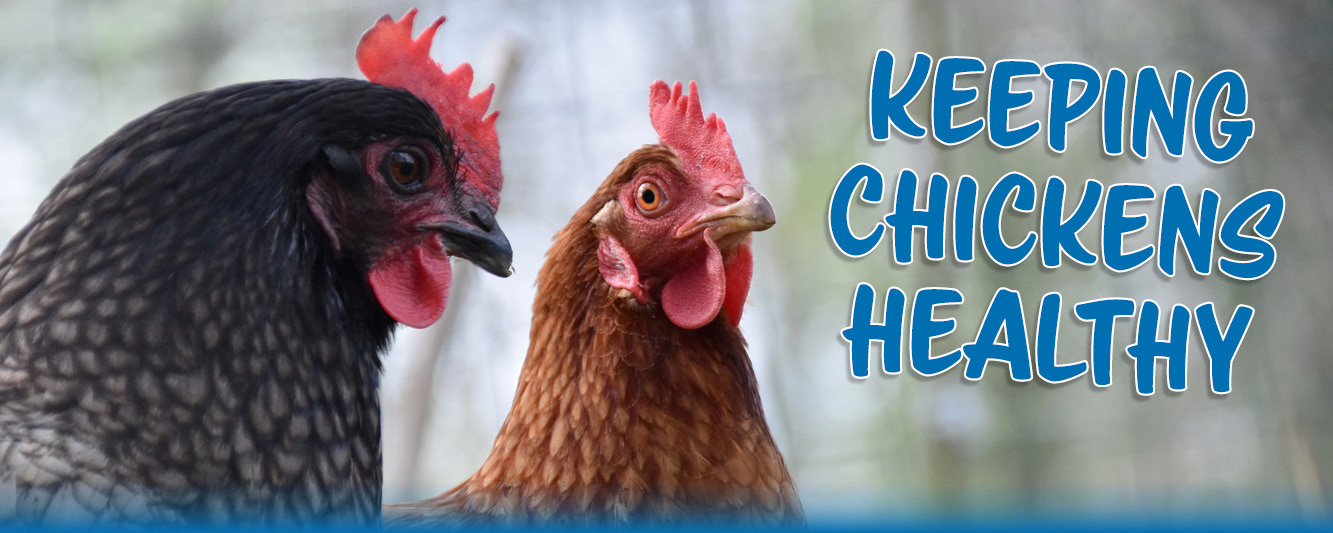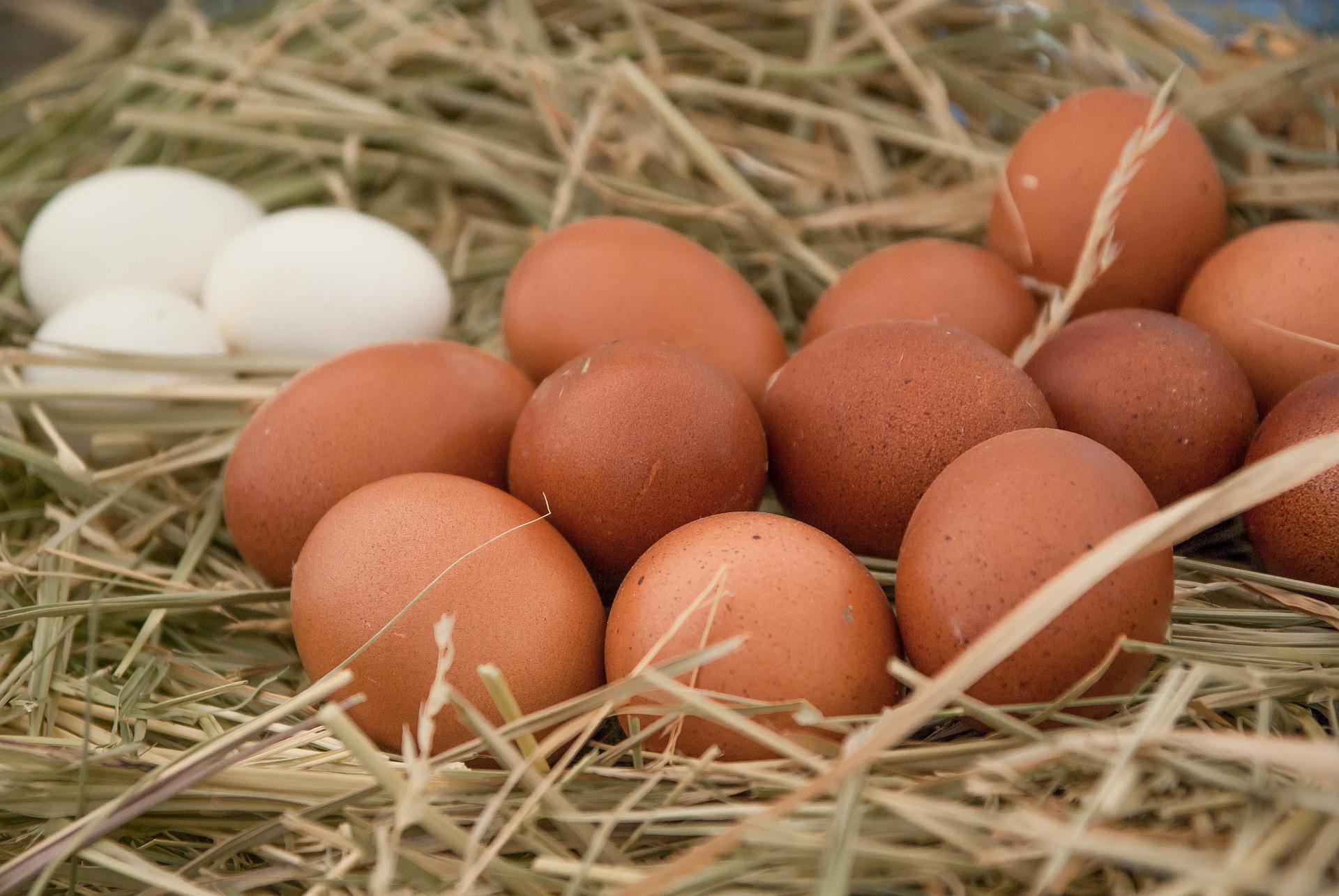Keeping Chickens Healthy

Aggresive Behavior
There are a variety of issues that may cause pecking or other aggressive behaviors. One common cause to look for is possible changes in weather that would force the birds to spend more time indoors, where crowding may cause the behavior. It can be helpful to isolate an aggressive chicken from the flock for a few days – this cooling off period can help reset the pecking order and restore some harmony to your flock.
Hens Eating Eggs
Egg eating can be a frustrating and costly problem - and unfortunately it is a hard habit to break once established. The birds may be lacking that essential nutrient and are finding it in the eggshells. Although several of our layer feeds have extra calcium, it is always still a good idea to provide it free choice through the use of oyster shell. Another possibility is that during molt, your birds were seeking extra protein sources and learned to eat eggs to satisfy that need. They may be done molting, but have learned that eggs are a tasty treat.

After you give them some oyster shell, you can try a couple of things to help get them to stop the egg eating habit like collect eggs frequently throughout the day to minimize the chance of eating. You can also try putting golf balls or hard fake eggs in the nests so that when they peck they don't get anything from them; this will sometimes help cure the problem. If one or two birds are eating the eggs be sure to separate them quickly from the rest, as the others will copy this behavior.
Chickens Around Horses
Chickens make excellent barnyard companions for horses. Along with the insect control and composting skills the chickens provide, horses will benefit from some natural "de-spooking" training!

Avian Flu Update
According to the CDC, the United States continues to experience outbreaks of highly pathogenic avian influenza (HPAI) A(H5N1) virus in wild birds and poultry. The virus has been circulating among birds and poultry in different parts of the world for many years and continuing to evolve into different groups that are referred to as clades. The current clade of H5N1 virus, called clade 2.3.4.4b, appears well-adapted to spread efficiently among wild birds and poultry in many regions of the world. It has been detected in wild birds in all 50 states and has caused bird outbreaks in 47 states affecting more than 58 million commercial poultry and backyard flocks.
Best Practice: The current public health threat to people from H5N1 virus is low. However, people should avoid direct and close contact with sick or dead wild birds, poultry and wild animals. People should not consume uncooked or undercooked poultry or poultry products, including raw eggs.
Salmonella Safety
Salmonella is a serious concern for backyard chickens and commercially available chicken products alike. To personally avoid salmonella germs, always wash your hands with soap and water immediately after touching backyard poultry, their eggs, or anything in the area where they live and roam.
To help prevent your flock from contracting salmonella germs, avoid leaving food scraps on the ground which encourage mice, rats and vermin. Help control insects such as flies and roaches by cleaning the coop regularly. Regularly change the nesting box straw as well as the roosting bedding. Clean the coop floor, chicken feeders and waterers as often as possible.

